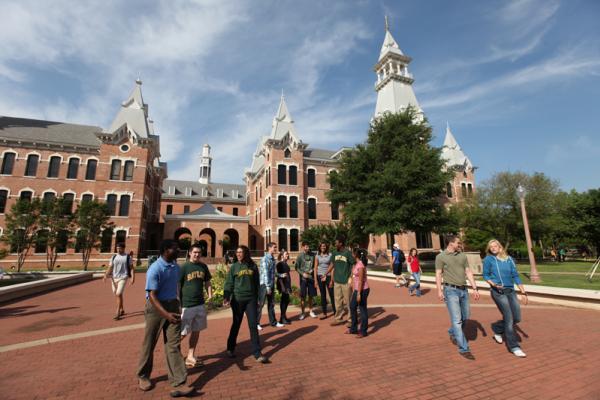Should religious colleges be bound by the same union and labor rules as secular universities? Or be rated by the same criteria?
Those questions and more will be tackled by the presidents of three major universities who say they are united in supporting the values that faith-based schools bring to higher education even as they grapple with government regulations that can challenge them.
For the first time, the top officials of Baylor University, Catholic University of America and Yeshiva University will lead a discussion Feb. 4 in Washington on the “calling” of faith-based universities.
Baylor University President Ken Starr said faith-related schools are charged with helping students learn about “living life purposefully,” which he said goes beyond simply helping students get jobs and be productive citizens.
“That’s very good, but is that enough?” said Starr, who leads the world’s largest Baptist university, in Waco, Texas. “We want to take the conversation to a broader level of what is in fact the education enterprise all about at its very best, at least from our perspective.”
All three leaders see challenges to the religious freedom of their institutions from the U.S. government.
Starr, who is a board member of the National Association of Independent Colleges and Universities, cited plans by the Education Department to change how it rates universities.
“We’re very concerned that the proposed approach of the Department of Education will lump all institutions into the same categorization system,” said Starr, the former independent counsel who investigated President Clinton’s affair with Monica Lewinsky.
“We’re concerned that the rating system will fail to reflect, almost by definition, the enormous diversity in our pluralistic system of higher education.”
CUA President John Garvey said there are numerous regulations that are challenging faith-based schools — from the Obama administration’s contraception mandate to a December ruling by the National Labor Relations Board that permits some religious and other private university faculty members to unionize.
“They’re telling religious schools who their faculty can be and what the terms and conditions of employment, that is to say, what they can teach,” said Garvey, whose Washington campus is the only school in the country overseen by the U.S. Conference of Catholic Bishops.
“That the government ought to have some say over the people and the courses that are being taught at religious universities — that’s a big deal for religious freedom.”
Yeshiva University President Richard Joel — whose New York-based Jewish school was the subject of a 1980 Supreme Court decision about NLRB regulations — said there is always “ferment” about such religious freedom issues. He said leaders of “purpose-driven” institutions are concerned not only about overreaching government but also accrediting agencies that need to “respect faith-based universities’ rights to remain true to their ideals.”
Starr and Garvey — both former law school deans — have jointly addressed religious freedom issues in the past, and Joel, who also is a lawyer, said he sees advantages to faith-based universities discussing the future of private higher education together.
“Faith-based universities are not about to deny their raison d’etre,” said Joel, whose university is a new member of NAICU. “I think that more and more universities, particularly private universities, have to say what are we about and what makes us indispensable.”
Adelle M. Banks is production editor and a national correspondent at RNS. Via RNS.
Got something to say about what you're reading? We value your feedback!
